A Final Choice
Crucial considerations on life’s final journey.
“Life is a terminal illness,” the saying goes. And throughout human history there has been very little choice about when and how death will find us.
There are those who feel a good death would be to go unexpectedly in their sleep. But in reality most of us will know when death is imminent. And whether our decline is slow and gradual or rapid and steep, how we experience our inevitable mortality has been largely beyond our control.
In recent years, though, legislative changes, improved drugs, and brave advocates for dying with dignity have all contributed to giving us more personal control than ever before over how we approach our last days. And across Headwaters, there exists a dedicated team of people devoted to helping us fulfill our final choice.
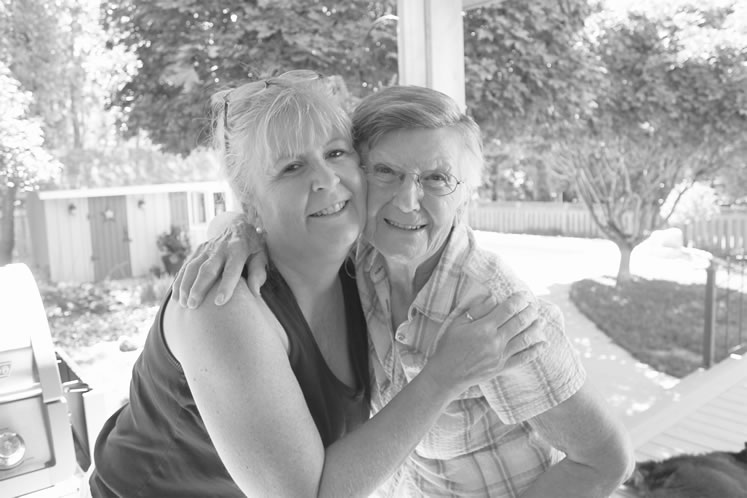
Michele Keeler and her mother, Frieda Hofer, who spent her final days at Bethell Hospice. The experience of spending time with her mother at the hospice changed the direction of Michele’s life. Courtesy Michele Keeler.
The farthest thing from a sad place
For nearly 30 years Michele Keeler and her mother, Frieda Hofer – whom everyone knew as Oma – lived around the corner from each other in Erin. Every morning, Oma would give Michele a call, just to let her know she was well.
Then one morning in January 2017, Oma suddenly wasn’t well.
What followed was a brief but ruthless illness, culminating in a six-week stay at Bethell Hospice in Inglewood.
The hospice holds a leaving ceremony for every resident. When the funeral director comes to escort the resident’s body out of the building, everything stops. All the staff, the volunteers, the family members – whoever is there at the moment – gather by the front door. Sometimes they sing a song or read a poem.
Oma’s leaving ceremony took place on April 27, 2017. She was 84. And the experience at Bethell fundamentally altered the trajectory of Michele’s life.
Opened in 2010, Bethell Hospice was the vision of Lorna Bethell, who donated $2 million and tireless advocacy, toward creating the facility. The money was eventually matched by the ministry of health, with community fundraising covering the rest.
“Lorna was a force to be reckoned with,” says Julie Hymers, associate director of marketing and communications for the hospice. “She had experiences in her life that led her to believe no one should die alone, and she came to believe the community needed a hospice.” Though Lorna herself died in 2013, her daughter, Elizabeth Birnie, still volunteers at Bethell.
The 10-bed facility now serves up to about 160 residents annually, primarily from Dufferin, Caledon and Brampton. While there’s always a waiting list and it’s impossible to know when a space will become available, admission is based on the greatest need, rather than on how long someone has been on a list.
There is no cost to residents. Funding comes in part from the province and in part from community fundraising.
Staff at Bethell consists of part-timers and a small core of full-time employees, all of whom specifically chose to work in hospice care. They’re supported by a whopping 175 volunteers who play a wide variety of roles, from attending residents’ bedsides to gardening. Many of the volunteers are family members of former residents.
The environment at Bethell is very different from a hospital. Hospitals generally function to cure people, while hospice and palliative care facilities seek to provide comfort and quality of life for the time people have left after medical treatment is no longer useful. That care extends not only to the hospice resident, but also to the resident’s family and friends.
For Michele, an only child who was dealing with the first significant death in her family, Oma’s illness was fast-paced, frightening and otherworldly. “When we came to the hospice, I was in shock, feeling the weight and stress of caring for Mom and knowing this meant end of life, but also not really expecting it either. It felt like ‘we’re really not supposed to be here,’” she says.
A Bethell social worker helped Michele bring perspective to what she and Oma were going through. The social worker encouraged Michele to treasure the final times with her mother, to say everything that needed saying, and to have those conversations rather than drift into self-pity. “And to realize that end of life is just as natural as being born,” says Michele.
As her time at Bethell went on, Michele came to cherish the patience, love and support that was offered. “At first I couldn’t understand why everyone would be so giving of themselves. They didn’t know me, they didn’t know my mom. It was just so different from the hospital experience.”
Beyond the staff and volunteers, there’s also a sense of community among residents’ family members, says Michele. “When you’re going through something like this, you feel very alone, and you feel that your situation is unique, but actually the ways we deal with it are very similar.”
Partway through Oma’s time at Bethell, something profound happened for Michele. “I knew I wanted to be here,” she says. “It felt like home.” So she resolved then and there to change her life. Although she was in her 50s with a well-established career in marketing, she decided to return to school to become a palliative care nurse. The time at Bethell “was very pivotal for me,” she says. “There was no choice about what I needed to do.”
Less than a week after her mother’s death, Michele signed up for the training required to become a volunteer at Bethell. Before long, she was upgrading her science academics and was then accepted into the accelerated practical nursing program at Georgian College.
This spring Michele completed the in-class portion of the program, making the dean’s list. Over the summer she finished a three-month practicum as a student nurse at Bethell. She will be writing her licensing exams this fall and hopes to secure a position at Bethell after that.
Many people don’t know what to expect when they first walk through the doors at Bethell but, as Hymers puts it, “It’s the farthest thing from a sad place. It’s a place of joy, and love, and compassion.” There can also be humour: “I can recall a number of people who connected with our team on a very jovial level.”
Of course, with the impending death of a loved one comes the full range of human emotions. “There are days when you’re frightened,” says Hymers. “There are days where you are unbearably sad. And I’m sure occasionally there are days when you’re angry. But part of the comfort of being here is that all of those emotions are okay.”
Exploring end of life options
In 2018 Dr. Cathy Candusso and Dr. Mercedes Rodriguez shared the prestigious Dr. David Scott Award, which honours physicians who go above and beyond in the Headwaters health care sector. In addition to operating their own family practices, the two doctors are leaders in palliative care. The award recognizes their efforts to develop more co-ordinated services in the community and to provide better end of life care.
Asked to define palliative care, Candusso says, “It means you have a life-limiting illness, and we’ll try to improve your symptoms along the way. It means we’ll improve the quality, and sometimes the quantity, of life.”
Rodriguez adds, “End of life care is a time frame within palliative care. They aren’t equal.”
Indeed, palliative care can start a long time before someone dies. In the case of a person who has, for example, kidney disease that will become life limiting, or an early diagnosis of dementia and the knowledge things are going to change over the coming years, the doctors might choose to start talking about end of life early. Rather than a negative approach, the conversation gives people more time to put their affairs in order.
In 2016, a new option became available when the federal government passed a law permitting medical assistance in dying, or MAID. According to the Ontario chief coroner’s office, as of July 31 this year, nearly 3,500 Ontario residents had opted for MAID. This figure includes 15 in Dufferin, 209 in Peel Region and 65 in Wellington. Provincially, nearly half the MAID deaths took place in a hospital, with a further 43 per cent in private residences. The gender of people who received MAID was split nearly evenly. The average age of MAID recipients was 74, with the youngest being 22 and the oldest 106.
Though the number of people receiving MAID provincially is trending upward, Candusso and Rodriguez have noticed a different pattern locally. Initially inquiries about MAID were more frequent. Though the option is still discussed, fewer people have been opting for the procedure. “There may have been a group of patients that were kind of waiting for MAID to become an option,” says Rodriguez. “Then it did, and that happened, but I think what we’re seeing now is what we can expect.”
Some people ask about MAID out of fear of what’s to come, but when the doctors explain all the other options, patients may decide on an alternative course. “Often when you provide adequate symptom relief,” says Candusso, “patients don’t feel they need MAID … I’ve had patients who have had assessments done, were eligible, and could pick a date, but they chose not to.”
Palliative sedation is one alternative the doctors discuss with patients. When it’s clear that someone is in the final hours or days of life and is suffering unbearable distress with no other means of relieving it, he or she can be given medication that induces a deep sleep. Doses are designed to keep the patient comfortable without hastening death, which usually occurs within about 10 days.
Rodriguez says palliative care has come through a positive evolution at Headwaters Health Care Centre. As for MAID, she says, “We’re definitely accepting of it here. It’s the culture of the hospital to accept it.” This stands in contrast to Bethell Hospice where, as at many hospices in Ontario, medically assisted death is not an option.
No Headwaters doctors perform the MAID procedure – and it’s easy to understand why. In the area’s relatively small communities, encounters with the administering physician may be awkward and uncomfortable for everyone. Beyond this, however, is the doctors’ mindset. Because physicians are trained to treat and cure people, the concept of medically assisted death is just too foreign for many. As Rodriguez says, “We put all that work into a medical degree to make people immortal.”
Doctors do, however, provide referrals to willing out-of-town providers, and the province runs a 1-866 call-in system to connect patients with physicians who will come here to provide the service.
Strict rules govern who qualifies for a medically assisted death, but Candusso says she hasn’t seen any eligible patients turned away. However, because patients must be able to give informed consent right up to the moment of the procedure, competency can be an issue. Even patients who have clearly and consistently expressed the wish for a medically assisted death can become ineligible if they are unconscious or incapacitated by either illness or medication. And no one with dementia qualifies.
Navigating the complexity of family relationships can also be a challenge. When differences of opinion arise among family members, the legal system defaults to what the patient wants. If someone in palliative care is unable to express her or his wish, responsibility falls to the person who holds power of attorney. But the goal is for the family to be in agreement because this affects the patient’s quality of life. “So you never want families fighting,” says Rodriguez. “It’s not uncommon for me to be the mediator.”
Though doctors can and do assist directly with patients and their families, most responsibility for palliative care falls to the committed professional team of nurses in Headwaters. Doctors are available for short periods, but nurses put in the hours and hours of work that actually make things better for patients, says Candusso. Of the doctors, she says, “We’re really the fluff.”
Both Candusso and Rodriguez acknowledge the emotional impact that comes with their work. Rodriguez has attended only one medically assisted death, for a patient in her family practice who requested her presence. Though Rodriguez did not conduct the procedure herself, “it was an emotional moment,” she says. “I thought I was okay with it for the rest of the day and some time after. But then, about a month and a half later, I was with my family watching a movie. An actor was dying in the movie, and all of a sudden, it triggered a memory from that moment, and I couldn’t stop crying for half an hour. I fully supported the patient, and there was nothing about me not being okay with it, but it was profound. It’s definitely not what we’ve been trained for in the classical sense of medicine.”
Both Candusso and Rodriguez stress the importance of planning for end of life care. Start talking with your family about resuscitation, about your will, about death and dying. And if you don’t have a will, make one.
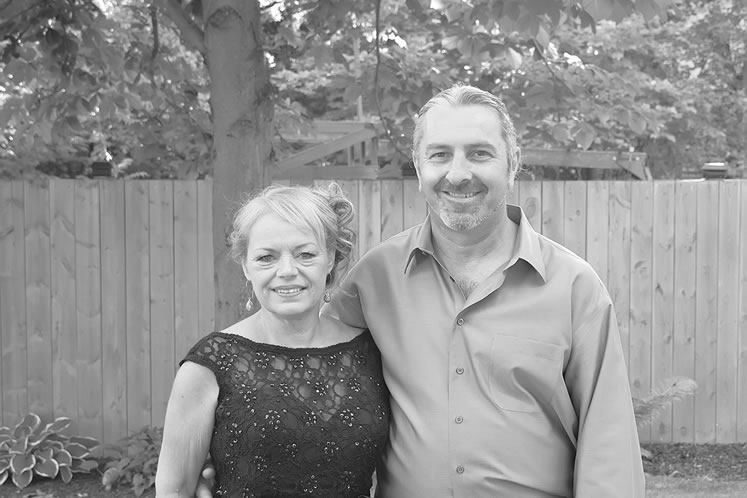
Cathy Timbers and her husband, Blair Marks, in 2016. This year, after a devastating cancer diagnosis, Blair chose medical assistance in dying. Courtesy Cathy Timbers.
Monday, June 10, 6 p.m.
By Cathy Timbers’ account, Blair Marks, her partner of 18 years, was a man who knew his own mind.
Last winter Blair, 56, was feeling unusually tired. He took a week’s vacation from his job as a warehouse forklift operator, thinking all he needed was a bit of rest. But by the time the week was over, he was feeling worse, not better.
Though Cathy says Blair “hated going to the doctor,” he finally did. On March 28, he and Cathy received a shocking diagnosis: stage 4 liver cancer.
The liver cancer was found to be secondary to another, primary cancer that was not identified. This diagnosis meant a transplant was not an option. From their home in Shelburne, the two travelled to numerous doctors’ appointments, but the enormity of the situation didn’t register right away. Finally, says Cathy, “We went online and realized there was absolutely no hope.”
Some other medical options might have provided a little more time, but Cathy says Blair “didn’t want any chemo or radiation whatsoever.”
On May 8, Rhonda McGuire, a home care nurse with Bayshore HealthCare, visited the couple’s home – and so began Cathy’s experience with the people she refers to as “angels.”
“Rhonda really clicked with Blair,” says Cathy. “She explained everything about the service and took the time to make sure we both understood.”
McGuire immediately arranged an appointment for the next day with Dr. Amy Catania, a palliative care physician at the North Dufferin Wellness Centre in Shelburne.
As Blair found it harder and harder to climb the stairs, he asked if a hospital bed could be set up on the main floor. Another member of the home care team came to assess the house not only for the bed, but also for other safety issues. The bed was delivered two days later.
“I was scared that I might not be able to care for Blair at home,” says Cathy, who has health problems of her own. “But Rhonda took all my fear away. We had access to her or another nurse or doctor 24/7.”
“Blair was a tough man,” Cathy says. “I never saw him cry.” In his remaining time he set about making his funeral arrangements. He chose a headstone. Both he and Cathy drove aging cars, so he looked after replacing them with one new one for Cathy. She adds, “He was more worried about looking after me than what he was going through.”
During their appointments, Catania explained MAID, and Blair decided that when he couldn’t look after himself, a medically assisted death would be his choice. Catania agreed that when Blair was ready, they could move forward.
On May 31, Blair met with the doctor to complete the necessary paperwork. MAID regulations require two different doctors to assess patients to confirm their suitability for the procedure. Catania completed Blair’s first assessment on June 4.
Initially, the second assessment was to be undertaken by a doctor in Newmarket, but the drive there would have been too painful for Blair. Instead, Dr. Shira Thomas came from Guelph on Sunday, June 9, to see Blair at home. A time the next day was set for the MAID procedure. Blair decided it would take place at Headwaters Health Care Centre, rather than at home.
The procedure was carried out in the hospital’s ambulatory care unit in the early evening. That section of the hospital does not operate after hours, so it was quiet. Cathy says that, for Blair, there was no second guessing. “He would have gone at 10 that morning if he could have.”
After such a difficult experience, what stands out for Cathy is the team of people who surrounded her and Blair in the 10 short weeks between his diagnosis and death. She’s grateful for the way the nurses, doctors and pharmacy worked seamlessly together. “It’s so heartwarming to know there are people who will help,” she says. “The compassion they show is unbelievable. They made it possible for Blair to die how he wanted to die.”
Witness to the human condition
A career in palliative care may present emotional challenges, but Rodriguez is quick to stress the positives far outweigh the negatives. “It’s the best part of my practice,” she says. “It’s what I enjoy the most. It’s meaningful. It doesn’t depress us to provide palliative care. It matters.”
Candusso adds, “And what you learn from people – you see the human spirit. You see the caring, the love people have. And you see the grief too. You really see a lot of the human condition. That’s what we value when we’re asked to be a part of it.”
Steps in Medical Assistance in Dying
- Speak with a doctor, nurse practitioner or other health care provider. They will discuss diagnosis, prognosis, and all care options available, including other medical treatments, palliative care, and mental and spiritual care, as well as medical assistance in dying, or MAID. Some medical professionals choose not to provide MAID. If this is the case, they must provide a referral to someone who does.
- A request for MAID must be made in writing. The form must be signed and dated after receipt of a diagnosis defined as “a grievous and irremediable medical condition.”
- A MAID request can be withdrawn at any time.
- You must personally consent to MAID. No one can consent on your behalf. You cannot give consent in advance, and you must be able to continue providing consent until the moment you receive the MAID procedure.
- Once a written request is made, the doctor or nurse practitioner will complete an assessment to determine whether you are eligible for a medically assisted death. Among the items in a long list of criteria are requirements that the patient be 18 or older and capable of making health care decisions. Patients must be in an advanced state of decline and experiencing intolerable discomfort, so that natural death is “reasonably foreseeable.”
- If the first assessment confirms eligibility, a second doctor or nurse practitioner must complete another assessment based on the same criteria and provide it in writing to the original doctor.
- At least 10 days must pass between the signing of the written request and the time MAID can be provided. This gives the patient time to think about the decision.
- The province runs a care co-ordination service that provides referrals and resources at 1-866-286-4023.
- After death, the medical professional must file a report with Ontario’s chief coroner.
Source: Government of Ontario. Medical Assistance in Dying: Information for Patients.
Related Stories
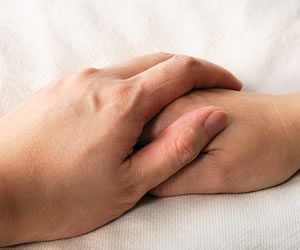
Bethell House: A Tranquil Home Away from Home
Mar 21, 2010 | | CommunityBethell House not only offers a tranquil setting for those at the end of life and their families, but it is a remarkable cross-community effort that truly proves the adage that it takes a village.
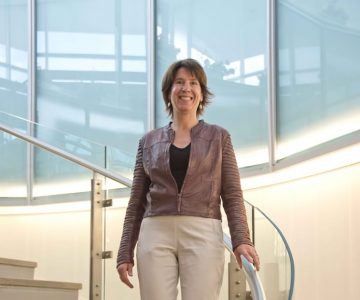
Headwaters Health Care Centre Faces the Future
Jun 20, 2019 | | CommunityIn the face of the province’s restructuring of health care, our Headwaters hospital is poised to emerge as the kind of community hub Ontario needs.
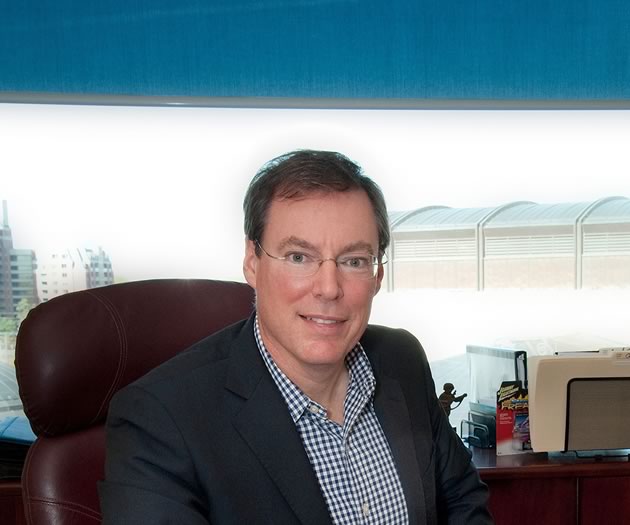
Charitable Giving: Planning the Last Gift
Nov 25, 2015 | | Over the Next HillAccording to a BMO Wealth Institute report, the biggest wealth transfer in history is now underway, as Canadian boomers are expected to inherit about $1 trillion by about 2030.
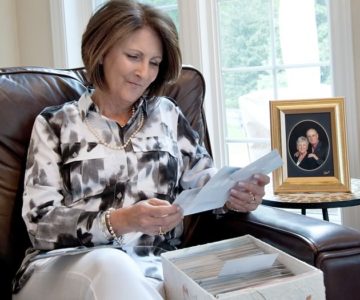
When a Mother Dies
Jun 21, 2017 | | Over the Next HillAlthough she misses her mother terribly, Tammi Langdon is glad they took the time to talk about the things that mattered before she died.






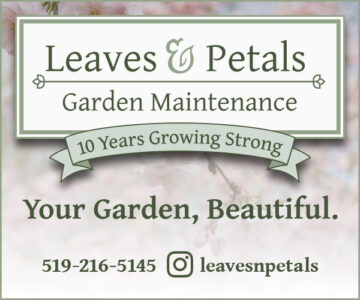





My husband was admitted to Headwaters Health Care Centre in early March. Things went downhill rather quickly and he was transferred to the Palliative Care Unit. The staff were incredible, not enough words to explain their compassion, knowledge, bedside care, etc. I had the fortune of meeting Dr. Candusso while there. What a marvellous person who helped me understand the process and Bethell House was discussed as a possible placement. My husband did rally for a while (I am sure this is only because of the HCC staff – doctors, nurses, physio, dieticians, chaplains, and even the cleaning staff), however, he passed peacefully one Monday morning in early July. We live in a wonderful community and are truly blessed to have such superb facilities as Bethell House and HCC to meet our final needs.
Diane Hull from Erin, Ontario on Sep 27, 2019 at 8:58 pm |